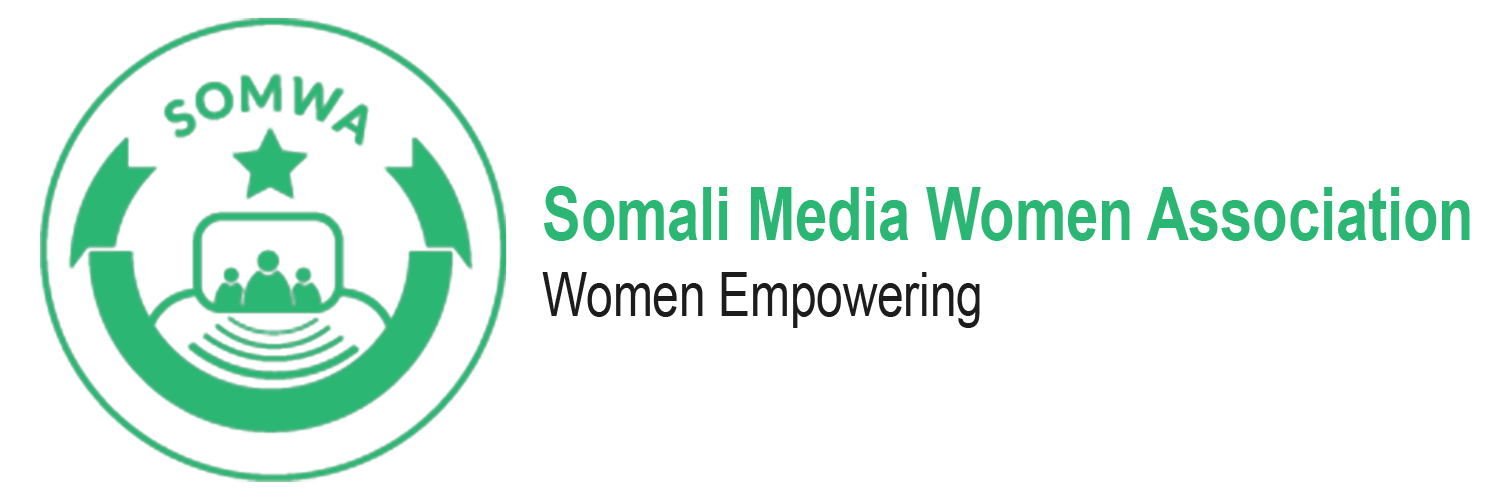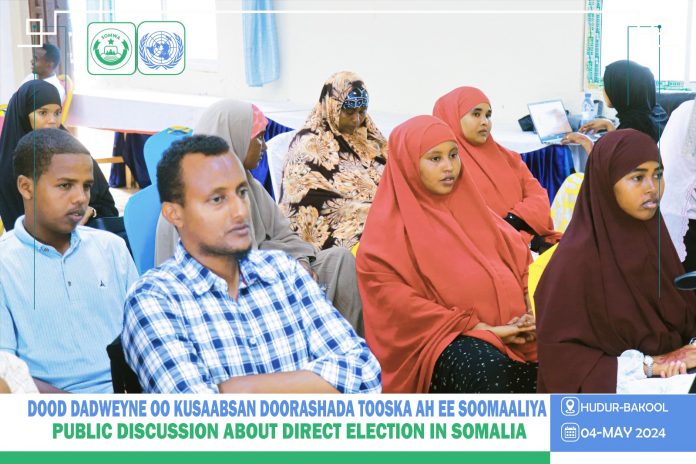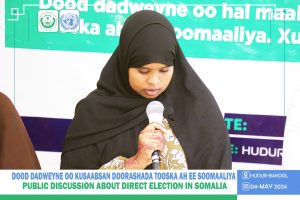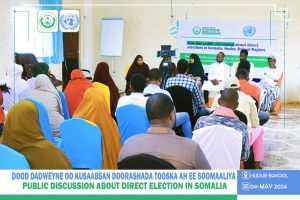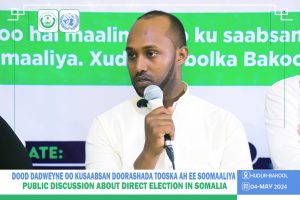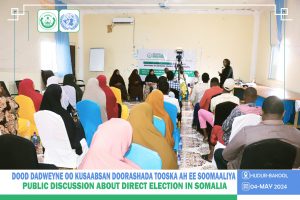Hudur, Bakool– Somalia has faced significant political and social challenges over the past decades, with ongoing instability and conflict hampering democratic processes. The country currently uses a complex clan-based electoral system, where a limited number of delegates from various clans select members of parliament, who in turn elect the president. Calls for direct elections have grown louder in recent years, reflecting a desire for a more democratic and transparent process.
The Event
The Somali Media Women Association (SOMWA) and the United Nations Assistance Mission in Somalia (UNSOM) collaborated to hold a one-day public discussion about direct elections in Hudur as part of their communications campaign to promote a culture of direct elections in Somalia.
Five experts attended the public discussion, which drew a diverse audience that included local authorities, women, youth, minorities, and the media.
Ali Husein, Hudur’s deputy district commissioner, opened the event, stating that his district had succeeded in electing five female councilors, including the second deputy district commissioner.
Speaking at the event’s opening, SOMWA’s executive director, Maryan Seylac, argued that open public discussion gives the community the opportunity to learn about and discuss critical issues that affect them, as well as review the clan-based election vs. the one-person, one-vote electoral system.
The forum then shifted to a question-and-answer session, allowing panellists to answer pressing questions and attendees to express their views and raise concerns.
Faadumo Abdiraxman, the chairwoman of Hudur women, criticised the 4.5 formula, stating that it gave more power to male politicians and denied the rights of vulnerable people, including women, minority groups, and marginalised groups. Faddumo reiterated that Al-Shabaab has besieged her district, and the government should prioritise re-liberating the city before considering elections.
Among the panellists is Malaaq Dirir, who, answering a question about why clan traditional leaders, also known as Malaaq, block women’s parliament seats and give them to men, said that it’s not always their fault to select male politicians, but the people from the clan pressure them to select men. He added that we are all in this unfair 4.5 system because of the collapse of the central government, and the way forward is the restoration of peace and a strong democratic government.
Councilor Jamal Abdi Koorkoor, who was among the pannellists, highlighted that Hudur is just one of the five districts of the Bakool region; only Hudur is under government control; others are under Al-Shabaab’s hand. People in Hudur prioritise regaining control over other cities, enabling them to enjoy freedom of movement and trade. Having said that, he praised his district for successfully electing five female councilors, including the second deputy district commissioner.
Fartun Omar, the deputy chairperson of the Hudur youth organisation, was among the panelists. She argued that, as young people, they believe in democracy because it allows them to elect the candidates of their choice and even run for office.
Mohamed Abdirahman Osman, who was among the attendees, testified that this political term in 2022-2026, his seat at the parliament, runs a female MP, and he testified that she is one of the best representations that his clan has ever had, showing that women are more loyal and hard-working than many male MPs. Said Kheerow
Conclusion
Participants and panellists raised concerns about the practicality of implementing direct elections, given the ongoing security challenges and the need for significant electoral infrastructure to ensure they are free, fair, and inclusive, especially in the Bakool region.
The discussion concluded with a call for further dialogue and collaboration among stakeholders to address the challenges and chart a path towards direct elections. The Somali Media Women Association (SOMWA) plans to hold additional forums in other cities to broaden the conversation and gather more input from across the country.
See more photos
